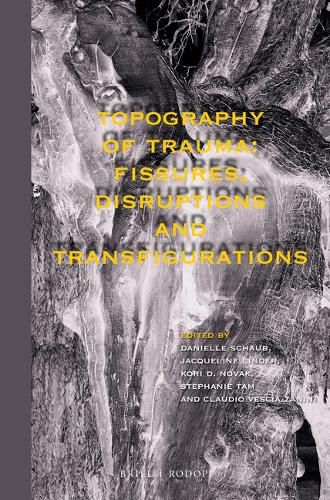Readings Newsletter
Become a Readings Member to make your shopping experience even easier.
Sign in or sign up for free!
You’re not far away from qualifying for FREE standard shipping within Australia
You’ve qualified for FREE standard shipping within Australia
The cart is loading…






This volume addresses trauma not only from a theoretical, descriptive and therapeutic perspective, but also through the survivor as narrator, meaning maker, and presenter. By conceptualising different outlooks on trauma, exploring transfigurations in writing and art, and engaging trauma through scriptotherapy, dharma art, autoethnography, photovoice and choreography, the interdisciplinary dialogue highlights the need for rethinking and re-examining trauma, as classical treatments geared towards healing do not recognise the potential for transfiguration inherent in the trauma itself. The investigation of the fissures, disruptions and shifts after punctual traumatic events or prolonged exposure to verbal and physical abuse, illness, war, captivity, incarceration, and chemical exposure, amongst others, leads to a new understanding of the transformed self and empowering post-traumatic developments.
Contributors are Peter Bray, Francesca Brencio, Mark Callaghan, M. Candace Christensen, Diedra L. Clay, Leanne Dodd, Marie France Forcier, Gen'ichiro Itakura, Jacqueline Linder, Elwin Susan John, Kori D. Novak, Cassie Pedersen, Danielle Schaub, Nicholas Quin Serenati, Asli Tekinay, Tony M. Vinci and Claudio Zanini.
$9.00 standard shipping within Australia
FREE standard shipping within Australia for orders over $100.00
Express & International shipping calculated at checkout
This volume addresses trauma not only from a theoretical, descriptive and therapeutic perspective, but also through the survivor as narrator, meaning maker, and presenter. By conceptualising different outlooks on trauma, exploring transfigurations in writing and art, and engaging trauma through scriptotherapy, dharma art, autoethnography, photovoice and choreography, the interdisciplinary dialogue highlights the need for rethinking and re-examining trauma, as classical treatments geared towards healing do not recognise the potential for transfiguration inherent in the trauma itself. The investigation of the fissures, disruptions and shifts after punctual traumatic events or prolonged exposure to verbal and physical abuse, illness, war, captivity, incarceration, and chemical exposure, amongst others, leads to a new understanding of the transformed self and empowering post-traumatic developments.
Contributors are Peter Bray, Francesca Brencio, Mark Callaghan, M. Candace Christensen, Diedra L. Clay, Leanne Dodd, Marie France Forcier, Gen'ichiro Itakura, Jacqueline Linder, Elwin Susan John, Kori D. Novak, Cassie Pedersen, Danielle Schaub, Nicholas Quin Serenati, Asli Tekinay, Tony M. Vinci and Claudio Zanini.